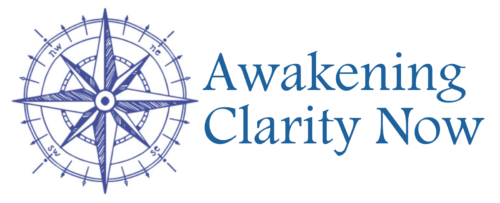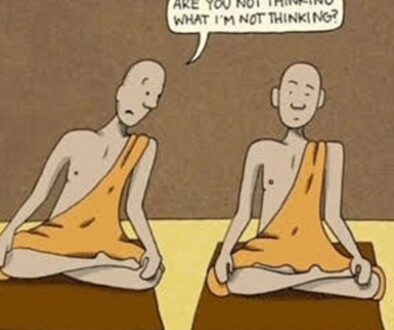GUEST PRIME POST! The Spiritual Side of Chemotherapy

John Ames is a retired educator who lives in Florida.
He is my friend, confidant, student, and editor of both this website and my books.
He is also a bright light.
The Spiritual Side of Chemotherapy
by
John Ames
So you may be pretty sure you know what’s going on, that you have identified the no-thing behind all things, that the world which at one time seemed so very concrete is actually an apparent world. Then you have a colonoscopy and two days later an apparent surgeon snips ten inches out of your apparent colon. That’s what apparently happened to me. And soon after this apparent happening came the news that a long course of chemotherapy would be arising.
We’ve all read it or heard it a thousand times. We should welcome and if possible will with our whole hearts whatever happens. And we’re familiar with the warning that the world we’re welcoming may not show up as the most comfortable or beautiful of tapestries. We may very well have started to do pretty well with the occasional traffic ticket or the neighbor whose yard is an eyesore. Yeah, but somebody just rudely violated my bowels and even as I am patiently waiting for the poop train to resume its schedule, I am informed that there are opportunistic cancer cells swimming around in my body. To top my new world off, I will be methodically poisoned over the next six months, and my prospect of being alive in five years has gone from something I never had to think much about to a value considerably lower than 100%. This is Colon Cancer 101.
It’s intimidating, but there is some good news or at least what was good news in my case. I have to hedge because what you hear about chemotherapy from medical professionals is that everyone experiences it differently, so there is no detailed study guide. Some people describe colon cancer chemo as a cakewalk and others are floored by it. I can only review what happened in my vicinity and explain why the worst stuff about chemotherapy turned out to be the best stuff from a spiritual standpoint.
Good thing number one: So long certainty.
Most of us cruise along in a more or less friendly groove, and though we will almost certainly suffer some disorienting events like a car crash, bad illness, or death in the family, we normally pick ourselves up afterward and embrace a sense of normality, not only embrace it but eagerly pursue it. We do so in spite of warnings from good spiritual authorities that we are always on the razor’s edge and would do well to wake up and realize it. So, we meditate, witness, or do some other practice, but the sun rises and sets, our breathing goes on, and before we know it, we are snoozing again. What can we do to escape the deadening effects of this routine? Well, one effective practice that may be thrust on us is chemotherapy.
About all that I found certain about chemotherapy was that every day I was going to feel like some kind of crap, but the beauty of the thing is that you can’t be sure from one day to the next just how intense or in what form that crappy feeling is going to show up. There are such exquisite variations beginning with the first day of treatment.
On Monday, you arrive and a chemo nurse accesses your port, which is a bottle-cap-sized thing the surgeon has installed under the skin up next to your clavicle. Its very presence creates an exercise in acceptance. You can feel it, and it feels strange. You can even move it around under your skin. Creepy. The port connects directly to a vein, and presuming that it is in working order, the nurse will stick a needle into it, get a blood return and off you go. But they often don’t work right, and mine was cranky, so the nurse would put me through a series of gymnastics to clear it. Stand up, sit down, turn your head to the left, lie back and so on. One can never be certain about this phase, and if the port doesn’t perform, they assume there is a fibrin blockage and give you a dose of heparin to dissolve it and if that doesn’t work something stronger. All this adds another hour and a half to the three hours you are scheduled to spend getting your infusion. Occasionally a replacement port needs to be installed. I was trending in that direction until we found the posture that, for reasons unexplained, made the difference. One nurse called it the Captain Morgan pose: erect and proud with the left hand on the waist, elbow sticking outward. Here is the chance to realize that only imaginary persons imagine they have dignity. Oneness just has it, even if oneness is standing like a pirate in a large roomful of people.
Once the port is sorted, the infusion can begin. First, the patient receives an intravenous combination of Benadryl (to help thwart nausea) and steroids (to ease the knockdown effects of the chemo drugs). The steroids make you speedy and probably will interfere with your sleep, which is another challenge to your expectations. The first chemo drug, most often Oxaliplatin, goes in over a two-hour period, usually without incident. The spiritually minded can practice being present during this period of enforced inactivity.
When the Oxaliplatin infusion is finished, you are connected to a small pump to which you will be married for the next 48 hours. It delivers drug number two, 5-Fluorouracil, and is carried in a fanny pack. Ask yourself “Who am I?” with this thing on and see if you are not inclined to answer, “A nerd with a fanny pack.” That was quite a challenge to my self-image, so I was glad to put the fanny pack on oneness. I will leave you to imagine how you bathe and sleep with this machine connected to your shoulder vein by a long plastic tube. There are differing approaches, but none is conducive to a sense of normality. Remember: vein, needle, port, tube, pump. Rolling over on that complex is potentially a horror story. It’s best to stay in the moment and not imagine.
If Monday is infusion day, then the following Wednesday will be pump disengagement day. This is a relief, and you may think, “Now I can get some continuity going,” but late Wednesday, the steroids begin to wear off and by Thursday you are in a hole. People want to know how chemo drugs make you feel. For me it was like having the flu in a diving bell: weak and experiencing a strange sense of pressure and distance from reality.
On Saturday, the zombie stirs. I could tell I was feeling better because I would notice myself doing a load of laundry. Sunday is a bit better or maybe it isn’t. There’s no telling for sure. I am informed there are people who progressively improve through the second week of the cycle, which is a no-infusion week. As one nurse put it, “You just start feeling pretty good and then we poison you again.” Ah, but those people don’t have the dreaded neutropenia, a form of low white blood cell count. If you have that, then on your off week you get Neupogen to boost your count. I got two shots, one on Monday and another on Tuesday. Neupogen also has side effects. In my case, weakness and faintness on standing. Luckily, I did not get the often debilitating “bone pain,” one of Neupogen’s severest effects. People with neutropenia don’t get an off week. Nothing for them to do but notice that “fair’ has nothing to do with spirituality.
And sometimes the pattern of recovery changes for seemingly no reason. Days that were good last cycle turn out to be bad next cycle. For example, a rational mind would expect that the Sunday before a Monday infusion would be the best day of the cycle because of the two-week interval since the last infusion. In my case, it once turned out to be the worst. On that Sunday evening, I was thinking, “I will have to call someone to haul me to the cancer center tomorrow. I can’t drive a car.” Monday morning, I felt okay, well chemo okay. And that was the only time I experienced that phenomenon. Nothing can be counted on. Chemo is an intense reminder of a truth about life that is often obscured by the humdrum.
The topic of obscuring brings up another unsettling thing that goes with chemo. During the six months of this regime, you tend to blame everything on the therapy. At about the four-month mark, I had two instances of severe vertigo. Of course, I assumed that they were chemo induced, but it did occur to me that I might be experiencing a stroke coincidental with chemo. On another occasion, I sat there thinking, “Is this pain in my arm a heart attack? Could it be interpreted as bone pain? Should I call my oncologist? Do I feel like going to an additional doctor’s appointment? Or should I just give it up to space?” I gave it up. Not that I’m advising it; just sharing. The point is that stuff pops up out of nowhere, just as in everyday life, but with chemo you have a great opportunity to notice.
I could go on and on about the uncertainties of chemo. You might be nauseous or you might not, or you might be nausea-free and feeling pretty smug about it and then in the last week of treatment start to retch violently. You might experience constipation or diarrhea, or one and then the other, or neither. And so it goes. The stories vary but the uncertainty is universal. And I haven’t touched on the always looming question of whether the chemo will do its work and kill those cancer cells. You let go or you suffer, which brings me to the next good thing.
Good thing number two: You don’t have the energy to resist.

If you’ve never been in a chemotherapy infusion area, you might well imagine it to be a dreary scene. After all, nearly everyone there has cancer. However, it struck me as a spiritual place. People are quiet, polite, and helpful. One would almost presume that only nice people get cancer. I observed little or no complaining or demanding. We all sat in our recliners and took our medicine. If we could help the person in the next chair with something, we did, and that attitude was not just because we were in more or less the same medical boat. In my view, we had all been slammed by something that could not be bargained with or sublimated. That’s quite an ego killer. Cancer is nature’s way of saying that the person you think you are is not in control. And while you are digesting that sobering fact, the world pumps you full of some substances so powerful that you don’t have enough vitality left to shake your fist at an uncaring universe. You have been taken down not one peg but many. What I felt when I entered the infusion area was an almost complete lack of resistance. It was calming and spacious.
My cancer center is located in a university town surrounded by a rural area. A rainbow of types came through our facility. Whatever points of conflict they might have had before chemo seemed to have been left behind. There was just one thing going on for farmhand and professor alike. You could feel a message entering your system: the default mechanism in human beings is kindness and acceptance. If you take away the means to resist, those traits will emerge.
Of course, I am going by a limited sample. Possibly other infusion areas are different. Maybe in big cities, they are raucous, but the only raucousness I saw, if you can call it such, was mostly from newcomers who had not yet felt the weight of the treatment. There was one fellow who came in and talked loudly on his cell phone. We all heard his story for maybe twenty minutes. Nobody said “Shut the hell up!” When he was finally settled in his chair, a nurse came in and administered a dose of chemo nicknamed the “Red Devil,” which is so toxic she had to don protective gear to do the injection. A team of medical people stood around him for the next hour while he assumed a fetal position and gave mumbled reports of his condition. My nurse dismissed me before he was done that day and I never saw him again, but I would guess he was more accepting after that initial blast. By the way, a great deal could be said at this point about chemo nurses, but I will just state that mine were angels.
If part of your spiritual practice is perfecting your character, then chemo offers real benefits. For my part, I didn’t have the energy to indulge more than the mildest forms of the first six deadly sins: pride, greed, lust, envy, gluttony and wrath. My pride started down the drain when my colon betrayed me, and I had no energy for greed or lust. I might have envied healthier people, but somehow the fact of cancer and chemo undercut that impulse. The ongoing intensity of the process left no room for an imagined other path. Gluttony? The off-putting taste in my mouth and a vague sense of queasiness made food a necessity not a joy. As for that delightful glass of wine or beer in the evening, chemo removed the buzz. Ditto for the coffee in the morning. I drank beer and coffee on habit alone. So wrath? It’s a form of resistance and I have already made the point that resistance takes energy. The seventh deadly sin, sloth, was the only one chemo made seductive.
With cancer, you quickly find out that your condition gives you tremendous leverage. The mere words, “I have cancer,” strike well-meaning people dumb. If you add, “and I’m getting chemo,” they are at your mercy. Here is where your resourceful ego sees an opportunity: “Yes! I am the noble victim! For a minute there I thought I was going to have to face the truth, but I have found a new cloak to wear.” In short order, the guy down the street whom you barely know can be running your errands for you. Cook? Why should I? People will just bring me food, and they are desperate to find something tasty for the poor sufferer. And the more I say “Fine” in a dispirited way, the more they turn themselves inside out to please me. With this power, I don’t have to lift a finger.
I think this points to one of the greatest potential traps that that the cancer adventure presents to the spiritual attitude, a trap that is also an opportunity. Whenever I told someone I had cancer, almost invariably I could see myself being redefined in the eyes of the person opposite me. While I wanted to take the perspective of oneness having a cancer experience, my listeners were viewing me as a victim of cancer. They had good intentions, and I loved them for their concern, but the gravity of their view had a pulling power. Perhaps the most mindful response I got was from a longtime friend. Early in my chemo regime I described what I was going through, and he observed, “That sounds awful but interesting.”
When I fostered an attitude of interest I felt liberated, not that I didn’t also feel like crap. However, the situation is dire only if you contract into a limited thing that can be threatened and exterminated. That is where the fear comes from. The thoughts go whizzing by, you identify, and you are into the dark tunnel. The tunnel beckons frequently during the cancer experience, and it really yawns when people take a poor-you approach. I discouraged it as much as I could without being impolite, but there was a part of me that liked it.
Though I tried to continue functioning normally, like waving cheerfully at the guy across the street picking up his mail, I could feel the siren song of cancer calling. “If only he knew how special I am: I have cancer. I’m in chemo.” Then I would bring my attention back to the grass under my feet or my hands reaching into the mailbox, and I was suddenly free of my thought process and consequently of cancer. I did not invariably succeed. There is always the old habit in the background that says something like, “You are in denial! Think about your situation. It is imperative that you dwell on it. Bad things will happen if you don’t!” But as we have all learned in spirituality, the truth tends to be 180 degrees from what our ego tells us it is. For me, the bad things started to happen when I did dwell on cancer, not when I looked around the room and appreciated its interesting details. I have often heard or read the following thought: “The only real freedom we have is to return to our true self.” That pointer has meant a great deal to me as a cancer patient.
If you have had cancer yourself, what I have described may or may not sound familiar. As I said at the start, people go through it differently. If you get cancer, you will do it your way, of course; however, even if it seems to be the worst thing that ever happened to you, I do suggest that you keep your eyes open for its many spiritual opportunities.




April 16, 2016 @ 9:51 am
Thank you, John, for all these insights into finding the face of God everywhere.
Sending you vibes for complete recovery.
Kathleen
April 18, 2016 @ 10:39 am
Thanks, Kathleen.
I am in great shape and as an additional perk, the doctors agree.
Love,
John
April 18, 2016 @ 2:26 pm
Yay!!!
April 16, 2016 @ 3:28 pm
Thanks for describing this, really interesting. Hope you are doing well – sounds like you are either way.
April 18, 2016 @ 10:41 am
Thanks, Stan. You are right. Being interested is the key. If one is not interested in one’s own experience, one is missing a great show. Thanks for mentioning that crucial word.
Love,
John
April 17, 2016 @ 1:26 am
WOW!! John. I find myself holding my breath after reading this. Thank you for your wisdom generosity insight and love that wrote this. Truly a great gift. ❤️
April 18, 2016 @ 10:42 am
Joyce, you are lovely. Thanks, so much. It is safe to breathe now.
Love,
John
April 17, 2016 @ 4:42 am
Oh my…
“The situation is dire only if you contract into a limited thing that can be threatened and exterminated.”
“The truth tends to be 180 degrees from what our ego tells us it is.”
“The only real freedom we have is to return to our true self.”
This is deep wisdom, thank you for expressing it.
April 18, 2016 @ 10:36 am
Dear Keiichi,
Thanks for highlighting three thoughts that have meant a great deal to me. It was good of you to comment.
Love,
John
April 18, 2016 @ 3:59 pm
This was deeply sobering in many ways. It bears reading more than once. Well balanced and well written. Thanks.
April 18, 2016 @ 7:03 pm
Thanks, Robbin. It is always nice to hear the words “well written.” And knowing Fred as I do, I would never speak against being sober. I appreciate your comment very much.
Love,
John
April 20, 2016 @ 10:43 am
What a great way to illustrate use of this teaching during a life crisis. John’s cancer was made bearable, even inspirational. Thank you, John, for showing us the way.
April 20, 2016 @ 1:21 pm
Hey, Babe! Welcome to the comments forum!
Love,
Fredness
April 24, 2016 @ 7:47 pm
Thanks Betsy,
One thing you can say about cancer is that it is very instructive.
Love,
John
April 23, 2016 @ 2:16 pm
Hi John
This is a great post. One of the things I really appreciated when I started to explore Fred’s teaching was the series of interviews you recorded with Fred. To get the best out of any interviewee you have to ask the right questions, and you asked some very pertinent questions! Hope you and Fred get to record some more.
I’ve not been called upon to walk the cancer path (yet), but I have walked it with 2 people very close to me; my wife and a former (spiritual) teacher. One thing became very clear, particularly in the case of my teacher; enlightenment/awakening guarantees nothing.
Hope you are doing well
Love
David
April 24, 2016 @ 7:11 pm
Thanks, David for your good wishes. One can’t get too many. If I could manage to corner Fred for an hour, we might do another interview, but as he likes to put it, he is a verb and always on the move. I agree that spirituality guarantees nothing, but it is quite some nothing.
Love,
John
April 23, 2016 @ 4:11 pm
I could feel … “the grass under my feet” … too as I read that. And feel the truth behind that example. Thanks for your Presence.
And the skill at describing the dark pull(s) was helpful to me. It occurred to me how funny it is the ego accuses us of doing what we’re doing, but with a substitute form. “You are in denial! Think about your situation … !” As you and your post are now another example for me, all I can be in denial of is my true nature (the rest is bait and switch). Going ahead and shining the light on that, though, becausse we Are that light, is maybe a very skillful practice.
Thanks for lighting my way, love, Mike
April 24, 2016 @ 7:18 pm
Hi Mike,
I’m delighted that you wrote this note. It means a great deal to hear that something I said proved helpful. And, in turn, your comment was very helpful to me. Wonderful that it works that way.
Love,
John